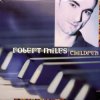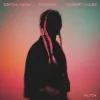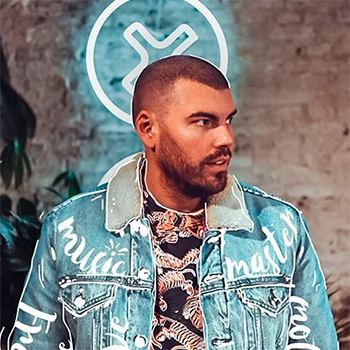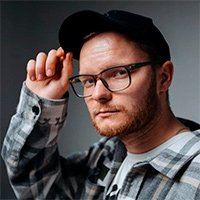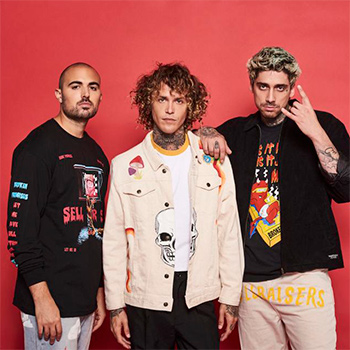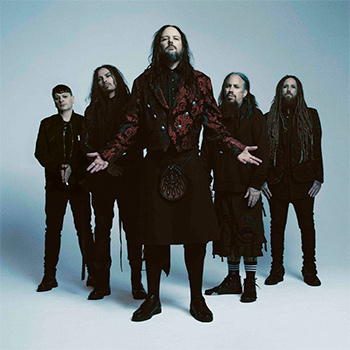
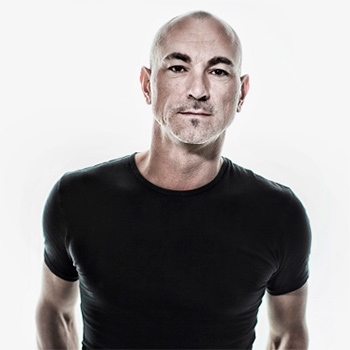
Robert Miles (birth name — Roberto Concina, November 3, 1969, Fleurier, Switzerland — May 9, 2017, Ibiza, Spain) was an Italo-Swiss composer, DJ, and producer, a pioneer of dream house. He is the author of the epoch-defining single “Children” (1995/96), a cultural phenomenon of 1990s Europe that sold in the millions and brought the piano lead into mainstream dance music. Miles’s career spans platinum releases, world tours, and a radical pivot from dance-pop to experimental electronics, ambient, and crossovers with jazz and world music.
Early years and career start
Born in Switzerland to Italian parents, Roberto grew up between two cultural worlds and, from his teens, played in bands, exploring synthesizers and recording. In the early 1990s he performed as a club DJ in Italy, mastered studio production, and shaped his signature: melancholic yet luminous harmonies, a minimalist drum section, widescreen ambient pads, and a piano motif as the emotional core of the track.
Breakthrough: “Children” and Dreamland
In 1995 Roberto recorded “Children” — a meditative track with a trademark piano theme, soft bass, and “transparent” pad textures. The composition quickly conquered European charts and spent several weeks at the top in the UK. The single cemented the term dream house — a direction where the club beat serves not euphoria but catharsis and a calming of the dancefloor.
In 1996 his debut album Dreamland arrived, featuring the singles “Fable” and “One and One” (vocals by Maria Nayler). The record became an international bestseller and one of the decade’s most recognizable electronic releases.
Broadening the palette: 23am and a turn to experiment
In 1997 he released his second album, 23am, with a more “nocturnal,” contemplative sound; highlights include “Freedom” (feat. Kathy Sledge). During this period Miles increasingly gravitated toward an auteur sound beyond radio formats and the club mainstream.
Organic fusion and collaborations: Organik, Miles_Gurtu
In 2001 Robert Miles launched his own label (S:alt Records) and released the boldly conceived Organik — live percussion, Eastern timbres, layered electronics, and contributions from notable instrumentalists. Organik Remixes followed in 2002.
In 2004 came a collaboration with Indian percussionist Trilok Gurtu — the album Miles_Gurtu, where ambient and electronics meet jazz improvisation and world rhythms. It stands as Miles’s aesthetic manifesto: uniting electronic sound design, live energy, and cinematic scope.
Later period: Th1rt3en and OpenLab
In 2011 he returned with Th1rt3en, blending electronics with guitar textures and post-rock hues.
In the early 2010s Miles founded the Ibiza-based creative radio platform OpenLab — a hybrid of radio station and art community dedicated to progressive music, design, and multimedia. OpenLab extended his ethos: “more meaning, less noise.”
Musical language and innovations
-
Piano as the hook: “Children” canonized the piano lead in dance music, making it a universal emotional marker for clubs and radio.
-
Dream house: emphasis on catharsis and empathy rather than euphoric aggression; gentle tempos, singing harmonies, and production with “air.”
-
Cinematic production: the 2000s albums play like soundtracks to imagined films — each theme a scene, not merely a “DJ tool.”
-
Crossovers: working at the junction of electronics, jazz, world, and ambient made him an influential figure beyond the dance scene.
Personal note and passing
Robert Miles passed away on May 9, 2017, in Ibiza after an illness. For the industry, his death was a blow: he remained a symbol of artistic integrity and independence — a producer who, after global success, consciously chose experimentation, advancing music as art rather than merely as a “product.”
Discography (selected)
Albums
-
Dreamland (1996)
-
23am (1997)
-
Organik (2001)
-
Organik Remixes (2002)
-
Miles_Gurtu (with Trilok Gurtu, 2004)
-
Th1rt3en (2011)
Key singles
-
Children (1995/96) — dream-house canon; a global 1990s hit
-
Fable (1996) — a bright, “soaring” variation on the dream-house theme
-
One and One (feat. Maria Nayler, 1996) — a radio crossover with pop aesthetics
-
Freedom (feat. Kathy Sledge, 1997) — a deep vocal house ballad
Legacy
The influence of Robert Miles is clear in the piano-house and melodic progressive-house of the 2010s and 2020s: from radio-friendly deep sounds to festival sets where “piano breaks” have become a go-to moment of emotional lift. He proved that dance music can be contemplative and humane — and for that, new generations of listeners and producers continue to love and rediscover his work.
